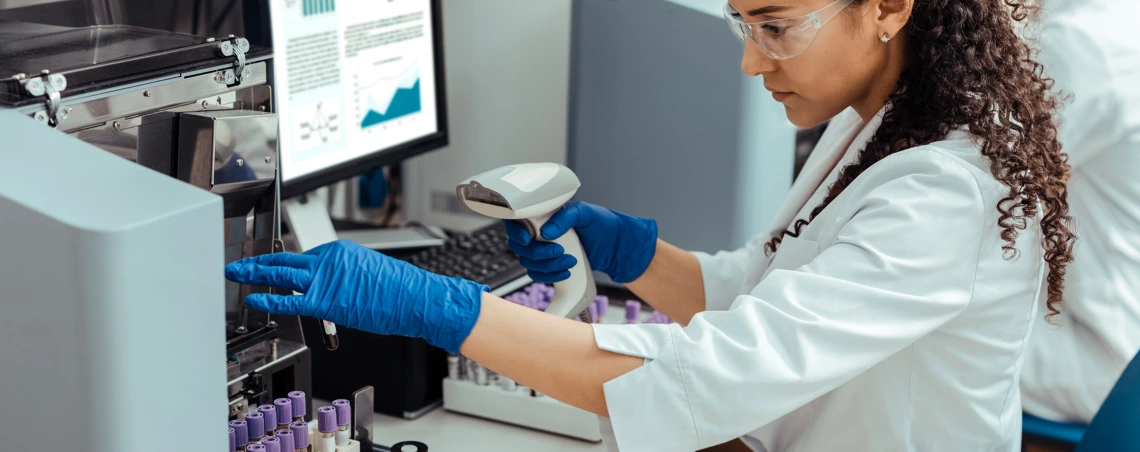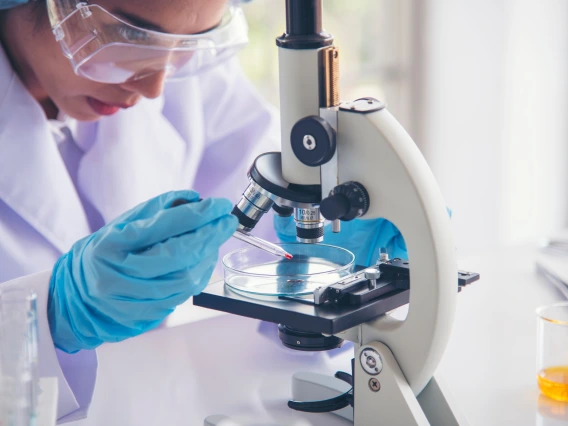
What is a Medical Technologist - Career Guide
What is a Medical Technologist?
As a medical technologist or medical technician, also known as a medical laboratory scientist, clinical laboratory technologist, or technician, you must be highly skilled in science and be able to perform complex testing on patient samples. These healthcare professionals analyze tissue, cell, and body fluids such as blood and urine samples. Medical technologists maintain and troubleshoot lab equipment, perform critical diagnostic tests, and analyze results. As a medical technologist, you must be highly skilled in science and be able to perform complex testing on patient samples. These healthcare professionals analyze tissue, cell, and body fluids such as blood and urine samples. Medical technologists maintain and troubleshoot lab equipment, perform critical diagnostic tests, and analyze results.
How to Become a Medical Technologist?
To practice as a medical technologist, one must have a bachelor's degree in medical laboratory technology or a similar field. Certification is also required. Although some medical technologists possess a bachelor's degree in medical laboratory technology from an accredited program or educational institution, others start on the path toward a career as an MT by completing a 4-year degree in a related field, such as an online bachelor's degree in general studies with a concentration in healthcare.
Steps to Becoming a Medical Technologist
In addition to completing a bachelor's to become a medical technologist, all US states will require you to have one of two certifications from the American Society for Clinical Pathology (ASCP) or American Medical Technologist (AMT). See the steps below to become a medical technologist—a bachelor's degree in biological science, chemistry, or a related field. I have one year of experience working as a medical technologist, taking medical samples and performing clinical testing, resolving technical problems, and conducting routine laboratory maintenance—certification by either ASCP or AMT.
While coursework for the Biology BS is available 100% online, degree completion requires two Organic Chemistry labs, in which students complete an immersion, hybrid format requiring 3.5 days per lab on the University's main campus in Tucson. A strong foundation in chemistry is essential for medical technicians.
Biology
Bachelor of Science
A degree in Biology lays the groundwork for understanding the fundamental concepts and principles that underpin all living organisms. General biology courses cover cell, molecular, physiology, and anatomy. These courses provide medical technicians working in "wet labs" with a solid understanding of the human body's structure and function, enabling them to comprehend the complexities of medical tests and procedures. They also learn about various diseases and their underlying biological mechanisms, which are vital for interpreting diagnostic results and aiding in patient care.
Bioinformatics
Bachelor of Science
Biostatistics is a crucial field within both Biology and Bioinformatics. Medical technicians in this area tend to work in "dry labs" and must be proficient in analyzing and interpreting medical data, including laboratory results, patient records, and clinical trials. Our Biostatistics courses equip individuals with the necessary skills to understand and apply statistical methods in analyzing healthcare data.
Ecology and Evolutionary Biology
Bachelor of Arts
A more unconventional but viable path to becoming a medical technician is completing a BA in Ecology and Evolutionary Biology (EEB). The curriculum for this program includes core courses in genetics, ecology, and evolution. Elective course options include organismal diversity and evolution, animal behavior, community and ecosystem ecology, and ecological and evolutionary theory, among other topics. The EEB BA allows you to complete the biology and biostatistics coursework necessary for becoming a technician; however, you are not required to complete the calculus courses essential to enroll in a BS degree. You also won't be required to take physics courses.
Medical Technologists Salary, Outcomes & Outlook
- According to ZipRecruiter, the national average for medical technicians and technologists in 2023 is $94,691 annually. However, top earners report making up to $137,491 annually. The average income for a medical technician in Arizona in 2023 is $$85,758.
- We have found that many of the students who graduate with a BS in Biology go on to enroll in medical school. Other career outcomes for graduates of the mentioned programs include becoming Biological Technicians, Environmental Science & Protection Technicians, and Safety Technicians.
- You'll be in demand if you want to work as a medical technologist. According to Lightcast Data, there were 191,116 unique job postings for medical technologists in May of 2023. Reports have shown that by 2025, there will be a shortage of 98,700 medical technologists in the US, which means that job prospects in this field look bright.
The Role of a Medical Technologist
Remember, to become a medical technologist, a strong foundation of knowledge in summarizing and presenting data, performing hypothesis testing, and assessing the significance of results will be invaluable to your success. Be sure to choose a degree where you'll gain an individual understanding of the biological processes, statistical analysis, chemical principles, and genetic mechanisms. Degrees that bridge the gap between biological knowledge and medical practice empower you to contribute effectively to patient care and diagnosis in the ever-evolving healthcare field.








